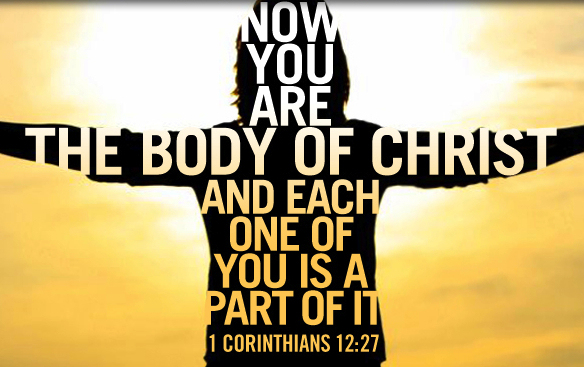Tragically—and ironically—one of the casualties of the modern charismatic movement is a biblical understanding of what spiritual gifts actually are. By emphasizing only a handful of gifts (the sign gifts) many Christians have lost sight of the less glamorous yet more common spiritual gifts.With a focus on tongues, signs, miracles, healings and the like, it is easy to be confused about how God through the Holy Spirit has actually equipped the church. That confusion isn’t limited to charismatic churches–in fact because of an avoidance of the sign gifts, that confusion is often seen even inside of cessationist and continuationist churches too. People think “those sign gifts are not what we do…” and the question of gifts never really gets around to “so what do we do?” With that in mind, here are three truths about spiritual gifts. Understanding these truths will not only help you serve in your church, but will restore the wonder that God uses us to do his will:
With that in mind, here are three truths about spiritual gifts. Understanding these truths will not only help you serve in your church, but will restore the wonder that God uses us to do his will:
- Spiritual gifts are unique in the NT age
Even the most ordinary gifts are extraordinary in redemptive history. In the OT there were no spiritual gifts like we think of today. God was not working through a group of people sealed with his Spirit, and God was building a nation—not a church.In OT Israel God used his Spirit to equip particular people for particular tasks. But there was no real corollary to the church. There was no organization that crossed cultural and ethnic lines to advance the good news of the kingdom to the earth. There was no body of believers, both Jews and Gentiles, held together by only the working of God’s Spirit.This means that when the Holy Spirit came at Pentecost, he brought more than fire. He brought the power to not only hold disparate people together in one body and focused on one task, but to actually edify one another through the giving of the gifts.So lest you tire of the ordinary nature of gifts of teaching, serving, mercy and the like, remember that in the OT there may have been teaching, serving and mercy; they just were not the means used by the third member of the Trinity to advance God’s kingdom on earth.
- Spiritual gifts are not mutually exclusive.
Thee NT has at least four lists of spiritual gifts (Romans 12:6 , 1 Cor 12:8
, 1 Cor 12:8 , 1 Cor 12:28
, 1 Cor 12:28 , Eph 4:7-12
, Eph 4:7-12 ; also 1 Cor 7:7
; also 1 Cor 7:7 and 1 Peter 4:11
and 1 Peter 4:11 ). But these categories aren’t meant to be a “choose the one that most applies” kind of list. Lyndon wrote about this point here, but the gist is that we shouldn’t stress over finding which gift from which list most matches us.And people do stress about this. There are spiritual gift tests you can take (or this one here). There are programs you can go through. There are hand-wringing conversations with Christians really confused about their gifting.
). But these categories aren’t meant to be a “choose the one that most applies” kind of list. Lyndon wrote about this point here, but the gist is that we shouldn’t stress over finding which gift from which list most matches us.And people do stress about this. There are spiritual gift tests you can take (or this one here). There are programs you can go through. There are hand-wringing conversations with Christians really confused about their gifting. Please don’t get me wrong—these all come from good motives. It is good to want to find your gifting, and it is good to want to serve your church. But so much of this comes from a wrong understanding of the gifts to begin with. You don’t have to decide between teaching and helping, or between serving and administrating. You don’t even have to know what the gift of administration is!The lists in the NT weren’t given to be a menu, but rather to be a starting place. They represent a good place for you to begin if you are a new Christian, and you really just don’t know what you are supposed to do in church.If you take these first two points together, you should come away with this: God is doing something new through the church, and he is using people in the church to do it. How? By giving us gifts that we can use to build the church.So then, how do you know what your gift is?
Please don’t get me wrong—these all come from good motives. It is good to want to find your gifting, and it is good to want to serve your church. But so much of this comes from a wrong understanding of the gifts to begin with. You don’t have to decide between teaching and helping, or between serving and administrating. You don’t even have to know what the gift of administration is!The lists in the NT weren’t given to be a menu, but rather to be a starting place. They represent a good place for you to begin if you are a new Christian, and you really just don’t know what you are supposed to do in church.If you take these first two points together, you should come away with this: God is doing something new through the church, and he is using people in the church to do it. How? By giving us gifts that we can use to build the church.So then, how do you know what your gift is?
- Spiritual gifts essentially come down to doing what you like, and what you are good at
By all means, take a gifts test. But the truth is those tests boil down to these two questions: what do you like to do, and what are you good at? Do you like teaching others? Are you good at it? Then I’ll hazard the guess that you have the gift of teaching. Do you like giving money to advance the gospel? Do you have money to give? We call that the gift of giving.If you are a Christian, then you like serving other believers. When you do that in the context of the church, that is your spiritual gift.This is not an excuse for believers to neglect obedience by claiming gifting in other areas. I’m sure we’ve all met the person who says “I don’t’ evangelize because that’s not by gift.” Ryrie pointed out many years ago that all of the gifts that are given to the church are also commands given to every believer. Every Christian is supposed to practice all of the gifts! But every believer is also better at some things than others, and it is in that area where he finds his gifting.What this boils down to: in this present age, God is building his church by using us, and he uses us by giving us unique desires and abilities. We in turn use those desires and abilities in the church, and the church is strengthened, which is our spiritual act of service.What about you? Have you seen a loss of focus on the “ordinary” gifts in the church? Do you see people confused about how to identify or use their gifts in the church?
Do you like teaching others? Are you good at it? Then I’ll hazard the guess that you have the gift of teaching. Do you like giving money to advance the gospel? Do you have money to give? We call that the gift of giving.If you are a Christian, then you like serving other believers. When you do that in the context of the church, that is your spiritual gift.This is not an excuse for believers to neglect obedience by claiming gifting in other areas. I’m sure we’ve all met the person who says “I don’t’ evangelize because that’s not by gift.” Ryrie pointed out many years ago that all of the gifts that are given to the church are also commands given to every believer. Every Christian is supposed to practice all of the gifts! But every believer is also better at some things than others, and it is in that area where he finds his gifting.What this boils down to: in this present age, God is building his church by using us, and he uses us by giving us unique desires and abilities. We in turn use those desires and abilities in the church, and the church is strengthened, which is our spiritual act of service.What about you? Have you seen a loss of focus on the “ordinary” gifts in the church? Do you see people confused about how to identify or use their gifts in the church?
Support Our Broadcast Network
Trending Stories
Latest
We're a 100% Listener Supported Network
3 Simple Ways to Support WVW Foundation
Make Monthly Donations
-or-
A One-Time Donation
-
Mail In Your Donation
Worldview Weekend Foundation
PO BOX 1690
Collierville, TN, 38027 USA -
Donate by Phone
901-825-0652

















